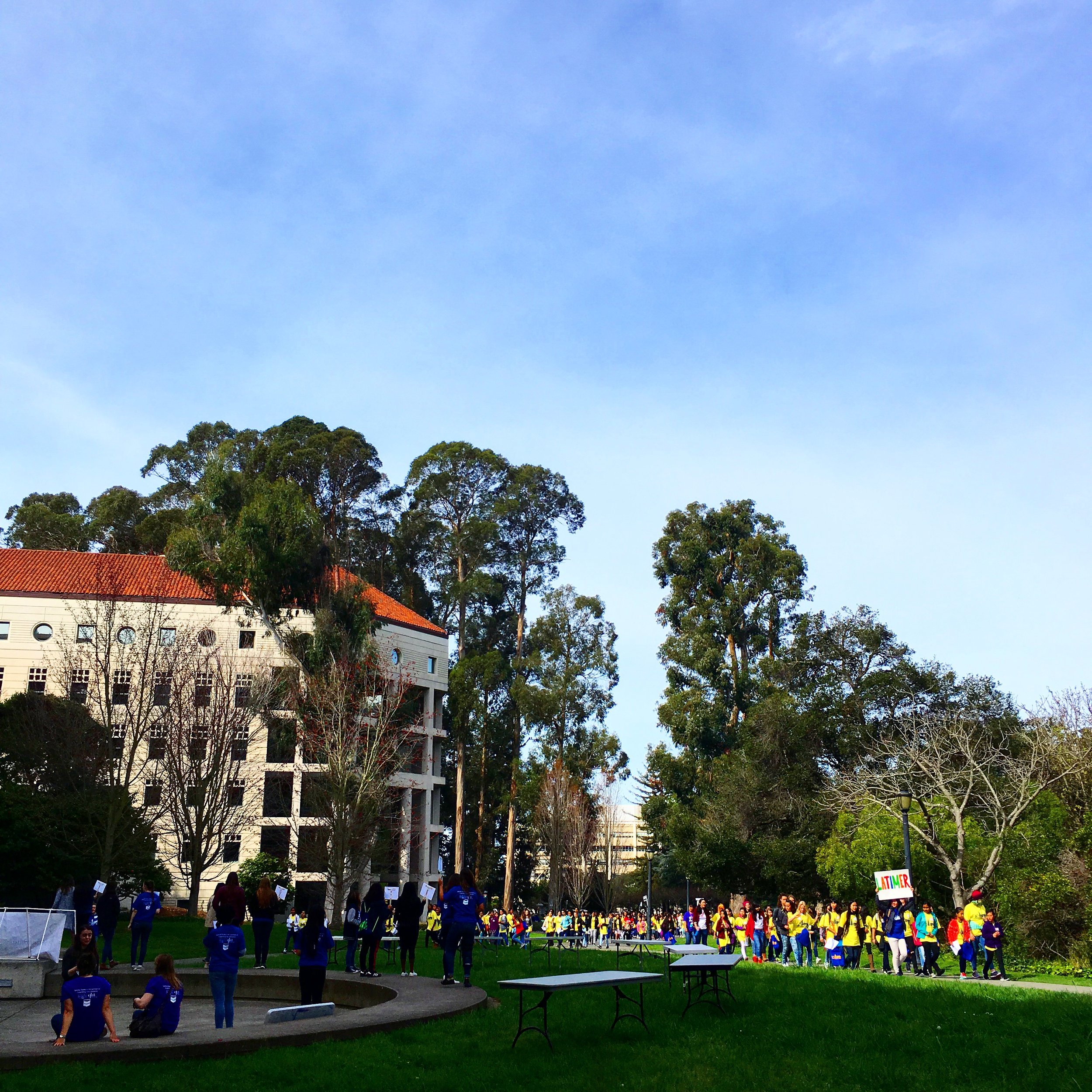My outreach objectives: making science accessible to all students and the public and increasing representation in higher education.
My outreach efforts are very much motivated by my experience as a first-generation college student, and as the first person in my family to pursue postgraduate education. I’ve worked on several projects that aim to broaden participation in science and higher education (especially at K-12 levels), some of which are listed below. I’ve also served as a graduate mentor for six wonderful UC Berkeley undergraduate students. In that role, I’ve provided research training, academic support, postgraduate advice, and have (I hope!) nurtured confidence and curiosity.
Letters to a Pre-scientist
I’ve participated in the Letters to a Pre-Scientist program since 2019, and am excited to be a scientist penpal again for this year’s program! This awesome program aims to connect elementary and middle school students from primarily low-income schools with scientist penpals as a way to form friendships, provide encouragement, and help students see their future selves in a STEM field. I always look forward to the day that a letter will arrive from my pen-pal, and love learning about their excitement for and curiosity about science. For any scientists reading this, I definitely recommend participating in this program - it’s a fun way to work toward making STEM more inclusive, and there’s nothing quite like getting a hand-written letter from a pal! You can find more information here.
SCIENCE COMMUNICATION
I had the pleasure of interviewing with Andrew Saintsing for The Graduates radio show on UC Berkeley’s KALX 90.7 FM, which highlights graduate student research across the UC Berkeley campus. We talked about my dissertation research and where it’s taken me, the challenges of fieldwork, and how I got interested in science. You can listen to my interview here (aired August 13th, 2019). And a shout-out to my collaborator and friend, Tesla Monson, who started The Graduates back when she was a graduate student at UC Berkeley - you can learn more about that history here.
SCIENCE NOTEBOOK PROJECT
During Spring 2018 I participated in the pilot program for the “Science Notebook Project,” one of the many programs supported by Community Resources for Science. I visited 4th and 5th grade classrooms in Berkeley and shared examples of how I use my science notebook (which usually includes taking meticulous notes in the field and on museum trips). I then guided an outdoor activity where each student got to be a naturalist for a day. Together, we explored the natural world with a new perspective, thinking about how (and why) scientists take notes about what they observe, and realizing along the way that, really, anyone can be a scientist.
St. Joseph’s Biomedical science fair
In early 2018 I mentored a bright and determined high school student over the course of a multi-week long independent research project. I helped guide her through formulating a research question, thinking about testable hypotheses, planning data collection and analysis (and seeing it through), and then interpreting the results. We spent many hours in the Museum of Vertebrate Zoology at UC Berkeley collecting long bone measurements from six mammalian species to test her hypotheses about the relationship between trophic levels and limb proportions. Her hard work paid off when she saw all those beautiful data points support (some) of her hypotheses (and when she won second place in her category at the St. Joseph’s Biomedical Science Fair!).
EXPANDING YOUR HORIZONS
Expanding Your Horizons (EYH) is a volunteer-based organization with roots in the SF Bay Area that organizes annual conferences worldwide to provide middle- and high-school girls with hands-on opportunities and women role models in STEM. I’ve volunteered repeatedly at the UC Berkeley-based conference, both as a day-of volunteer and as a member of the logistics planning committee. Watching young women from a range of backgrounds interact with women role models in STEM and seeing their excitement and enthusiasm about STEM fields (and their future place in them) makes this one of my favorite organizations to volunteer with.
BE A SCIENTIST
During Fall 2015 I volunteered in the “Be A Scientist” program (another one of the many programs supported by Community Resources for Science), which pairs graduate student mentors in the sciences with small groups of 7th grade students as they take on independent science projects. Over the course of six weeks, I mentored a group of three students through their own scientific investigations, helping them think of a question, design an experiment, collect and analyze data, and then present their findings.






